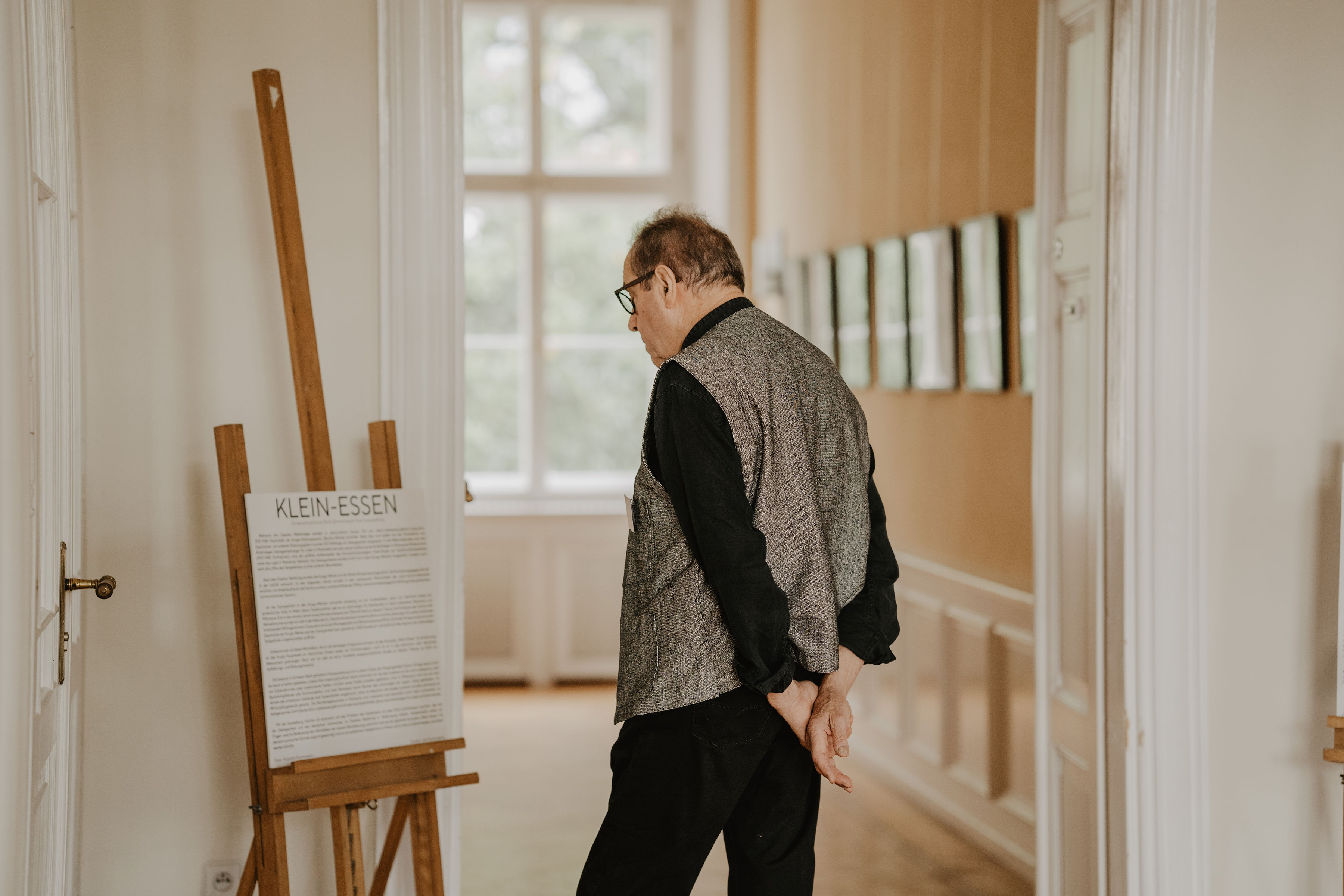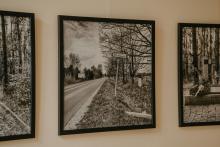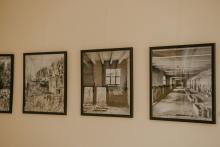
SMALL ESSEN Polish-German place of (non)memory. Temporary photo exhibition in Krzyzowa!
The exhibition can be seen in our Palace, at the May Hall (room 204) until 17.Nov. 2024r.
The creator of the exhibition is Prof. Krzysztof Ruchniewicz.
You are cordially invited!
If you are interested, please contact Dominik Kretschmann in advance
This email address is being protected from spambots. You need JavaScript enabled to view it.
Below is an announcement of the exhibition and a word from Prof. Krzysztof Ruchniewicz.
The exhibition documents one of many sites in Lower Silesia, Jelcz-Laskowice, and the neighboring villages of Miłoszyce and Ratowice, where forced labor of prisoners was utilized during World War II. Today, they are only ruins of buildings or concrete areas in the middle of a field, occasionally marked by a memorial stone, monument, or symbolic grave in the forest—and they do not constitute living places of memory today, as they have not penetrated into the broader Polish or German consciousness. There are some among them where no post-camp buildings have survived. The exhibition traces the paths of the past, overgrown with the weeds of oblivion. How to tell the story of these places of (non-)memory?
In Jelcz (now part of Jelcz-Laskowice), armament factories of Krupp (Bertha-Werke) were established during World War II. Forced labor of prisoners was used in their construction and later in the production of howitzers and other types of armaments or parts. Three labor camps operated near the factories: a camp for Jews in Laskowice, and, after its liquidation, a labor camp in Miłoszyce, one of the largest branches of the Gross-Rosen concentration camp near Świdnica, and a camp in Ratowice. Forced labor was used in the factory, as well as for (de)construction of the experimental range and other construction works.
After the war, the Krupp factories were taken over by the Red Army, and their equipment was taken deep into the USSR. In the following years, the abandoned halls were transformed into the Jelcz Automobile Works. In the mid-1950s, a labor camp was established for their needs, where prisoners were detained, this time as prisoners of the Polish communist regime.
For many years, the only commemoration of forced labor in the Krupp factories was a memorial stone, later a monument, and a symbolic grave in the forest. There were no commemorations in the post-camp locations in Jelcz-Laskowice, Ratowice, and Miłoszyce. Interest in this issue emerged only in recent years. At the initiative of the association of “Lokalna Grupa Zwiadowców Historii” (“Local History Scouts Group”), installations commemorating the place and fate of prisoners began to be erected in post-camp locations or their vicinity. A factory museum was opened in one of the assembly halls, dedicating one of the first rooms to the history of the Krupp factories and the use of forced labor. In 2023, an educational trail tracing the objects of the former testing ground was opened.
Despite these various actions recalling events from years ago, the Little Essen complex (referring to the main Krupp factories in Essen in the Rhineland) is not a place of memory, it has not penetrated strongly into Polish or German consciousness. We still lack a reliable scientific study on this subject, there is a lack of popularizing and educational materials.
The exhibition of photographs, consciously maintained in black and white style, aims to lead to these places from the past. Some of them have been preserved and can be easily identified. The purpose of others is still unknown. The only ruins that are still standing are of buildings or paved areas in the middle of fields. No post-camp buildings have survived in Miłoszyce, except for three brick buildings (commandant’s office and two barracks). There are no memorial plaques on any of them, the first one is inhabited, and the other two have served as utility buildings for years. The post-camp barracks in Ratowice and Laskowice have also not survived. In the latter village (now Jelcz-Laskowice), there is no plaque commemorating the labor camp where Jews were detained.
Through the exhibition, I want to draw attention to the problem of commemorating places associated with forced labor and German crimes during World War II, as well as to raise the question of the sense of local residents’ actions and the recognition of the entire Little Essen complex as a Polish-German place of memory and restoring it to social memory, not only in Poland but also in Germany.
Text: Krzysztof Ruchniewicz
Translated by Oliwia Kowalińska (student of English Studies at the University of Wrocław) as part of the translation practice.







